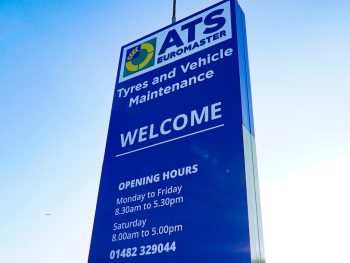ATS Euromaster has reported a “significant” increase in its SMR workload as a result of ageing fleets at UK businesses, along with major changes at Rivus.

The tyre and maintenance provider says it’s seen work on brake changes rise 27%, with commercial vehicle servicing up 41% and the number of MOTs completed increasing by 8%.
It’s due in part to the shortages of new cars and vans in recent years; the most recent BVRLA Outlook Survey found that while supply issues were finally abating, fleets are now facing a lack of parts and increasing SMR (service maintenance and repair) costs and delays.
Demand for Class 7 MOTs has also risen as a result of fleets running longer van lifecycles and a rising number of vans servicing dotcom deliveries. Fleets are also switching to a more planned approach to SMR that means van requiring new tyres is also being put through a pre-MOT vehicle health inspection to spotlight potential issues in advance.
But Mark Holland, operations director at ATS Euromaster, said the reduced number of SMR providers was also a factor, following the news earlier this year that Rivus had lost the account for BT Group to Holman. Rivus is now restructuring its business with 48 of its LCV garages closing.
“Along with other providers in the market also closing service branches, this has substantially reduced the number of market suppliers, of which we look to be a partial beneficiary,” Holland added.
In response to the rising demand, ATS is appointing new technicians. It’s also undertaking increased staff training, with 49% of all its maintenance workforce now able to work on electric vehicles, and by the end of the year it expected this figure to be 85% of its workshop staff.
“As a result of the increased SMR work going through our workshops, we are busy recruiting new technicians to join our business,” continued Holland.
“We have an internal training programme called Safe Systems of Work, which all new starters attend which is also accompanied by level 1 EV and hybrid training. It provides the groundwork for technicians to carry out the majority of tasks that fleets require before they progress to level 2 standard. It means we will be able to maintain the increasing demand for fleet SMR going through our workshops.”

